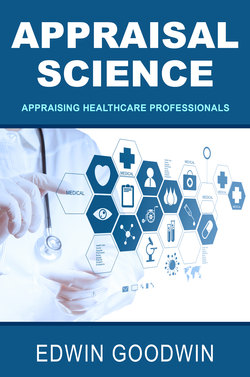Читать книгу Appraisal Science: Appraising Healthcare Professionals - Edwin Goodwin - Страница 6
На сайте Литреса книга снята с продажи.
Introduction
ОглавлениеJudging the capability of a healthcare professional is hardly an exact science. The practice of science is not above reproach when it comes to cover-ups, victimisation and scandals. Science as a matter of fact is built on checks and balances.
The term ‘science’ is universally defined as: ‘the intellectual and practical activity encompassing the systematic study of the structure and behaviour of the physical and natural world through observation and experiment’.
I believe that science, in its purest form, involves reasoning with objective intent, and is not tainted by self-interests or political agenda. It follows that every human being of sound mind has the raw capabilities of what society refers to as a scientist.
The commentary and debate about science is so important to human existence and sustainability that it cannot be left only to the confines of ‘qualified’ individuals. The alternative is a deferential attitude which is risky indeed, especially when one considers all the widely-reported scandals about once qualified, revered, or veteran scientists. Someone once said that science is like ordinary magic, but performed by academics. However, you don't need a science degree to spot mediocrity yourself, do you?
It is fair to state that medical doctors are the most respected of the healthcare professionals. In fact, Canada’s Governor-General David Johnston was cited as saying that, doctors are a party to a social contract, one that grants them status and privilege. But he added that such status and privilege entails an obligation to serve the public good. To whom much is given, much is indeed expected, and this is where accountability and integrity are crucial.
Simply put, if I were unable to freely exercise my option or choice to be dishonest with you, what I say or do could not simply be deemed as honest. What is the point of professionalism if accountability and integrity are not objectively tested for, or at the very least seen to be demonstrated?
The main thrust of this essay relates to the appraisal of healthcare professionals, with a focus on little-known biomedical scientists (in the United Kingdom) and their regulator, the Health and Care Professions Council (HCPC).
In 2015, the HCPC published a research report about the competence and professionalism of health and care professionals. The report authors (Professor Zubin Austin, Carol Christensen-Moore and Joan Walsh) encourage constructive debate and point to the need for better understanding of the context in which competency drift occurs and more focus on preventive methods of addressing poor practice.
In a previous report, HCPC Chair Anna van der Gaag stated that
“there is very little published research on ‘professionalism’ in the professions we regulate, or any that explores the perceptions of students and educators in this way.”
It was also reported in September 2016 that the HCPC receives more fitness to practise concerns about paramedics and social workers in England than for other professions. In 2014-2015, for example, paramedics made up 11% of cases but only 6% of the Register; social workers in England made up 58% of cases but only 27% of the Register. The HCPC has, now, commissioned a team at the University of Surrey to explore why and what can be done in the future to address this trend. The research is planned to report in September 2017.
The HCPC hopes that the findings might identify ways that all those involved in practice, education, employment, representation and regulation in these professions could work together to prevent problems occurring in the future. For example, there is the reflective question of how much more could be done with educators and employers to highlight the issues that are raised in complaints. It is believed that the research findings will also assist the HCPC in thinking about how it might undertake similar analysis in the future about trends in other professions, or about cross-professional issues.
Thus, the primary aim of this endeavour is to contribute to the understanding of what professionalism means - to objectively inform both the public and healthcare professionals about the current mediocrity and inequality in the appraisal system.
This is also an attempt at staking out my position as a disenchanted (not ‘disengaged’) healthcare professional. The reason is simple: If we don’t tell our side of a story, people will make up their own story about us, and it’s usually not a good one. Indeed, they assume we are hiding something.
Most of the content is generic and applicable across different fields.
